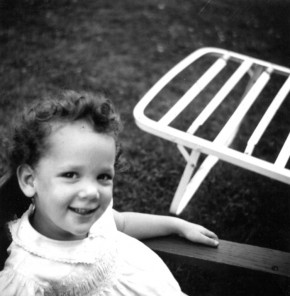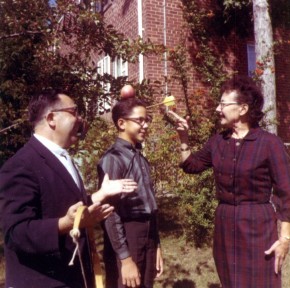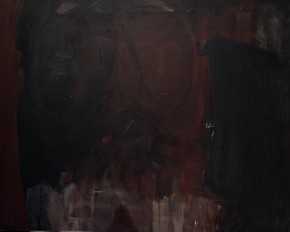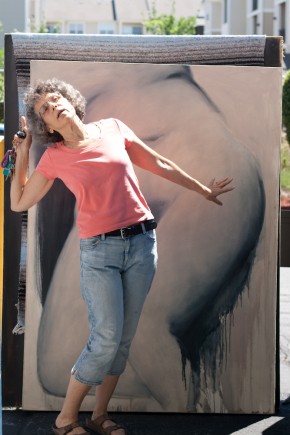My Dad loved taking pictures of his family and making fun family movies. He was a clown at heart. His profession of choice, as a matter of fact, was to be a clown. Instead he worked as a dress salesman who took pictures on the weekends. When I was three years old I loved posing for him, flirting into the camera. But soon I became self conscious and hated my image. I didn't feel ugly but I thought Dad's photos made me look ugly. In my imagination, I felt I was a princess and my ugly image betrayed my fantasy. In my eyes, the photos mirrored a truth that I couldn't tolerate.
At times, I refused to let Dad take my picture. One time, my brother, who was being cooperative by allowing Dad to pose him and take his picture, got M&Ms. Another time, I buried my face in a pillow to escape my father's lens. He took the picture anyway then silently walked away. To him, I was being uncooperative and difficult. I didn't receive his treats or was left alone. I felt punished and abandoned, an outcast in my own family. No one inquired about my feelings.
My Dad's clowning overwhelmed me. Sometimes his antics were fun, sometimes they were frightening. I was seven years old when the whipping cream container wouldn’t work. Dad decided to open the bottom of the aerosol can with a can opener. Whipping cream and my family’s laughter filled the kitchen as I fled in horror. No one noticed I was gone.
During one Halloween his need for fun took another toll. Another dad, a family friend, painted my face as my Dad looked on. I told the family friend I wanted to be a princess as I spied white foundation in his kit. I insisted he not use any of it on me because I associated white paint with being a clown. And I didn't want to be a clown. The family friend assured me that no white foundation was being applied. I trusted him unconditionally — naively — as he continued to wipe something on my skin. After trick or treating, the trick was on me as I looked in the mirror to discover white foundation covering my face. I felt humiliated. I thought I was the beautiful princess when all along I was a white faced, foolish looking clown. Where was Dad when I needed him?
I buried the full impact of my betrayal, but the feeling was too powerful for me to contain fully. I tearfully told Mom what had happened. Crying didn't begin to express the humiliation. But Mom understood my feelings enough to let me know later that she had spoken with Dad. Nothing more was said. I really don't know what I would have done if I allowed myself the full fury of my anger — scream, have a tantrum, hit or throw something. Perhaps if I had allowed myself to act out my true feelings I would have felt better in the end. Who knows?
Picture taking and clowning weren't the only ways my emotional life was impacted by Dad. When I was six years old, I had my tonsils out. In 1956 children were put in a ward and picked up the day after their operation. When it was time to pick me up, to this day, I can see the empty ward and feel the fear of abandonment. As I sat alone on the edge of my bed, a nurse assured me my parents would come. I walked over to the ward's entrance, sat on a bench and didn't take my eyes off the elevator doors as I continued to wait for their arrival.The moment Mom walked out of the elevator, followed by Dad, I ran into her arms. During the ride home, I sat alone in the back seat and heard Mom scold Dad for attending to an errand instead of first picking me up.
Throughout my childhood, I contained negative feelings. And by doing so I felt safe. In time I realized that by penting up my feelings I was not being true to myself. This realization would manifest itself into despair then finally rage.
Rage is an inspiring, powerful creative force. In my late twenties when I felt safe enough to feel it, rage exploded onto the canvas as a chaotic mess – finally.





